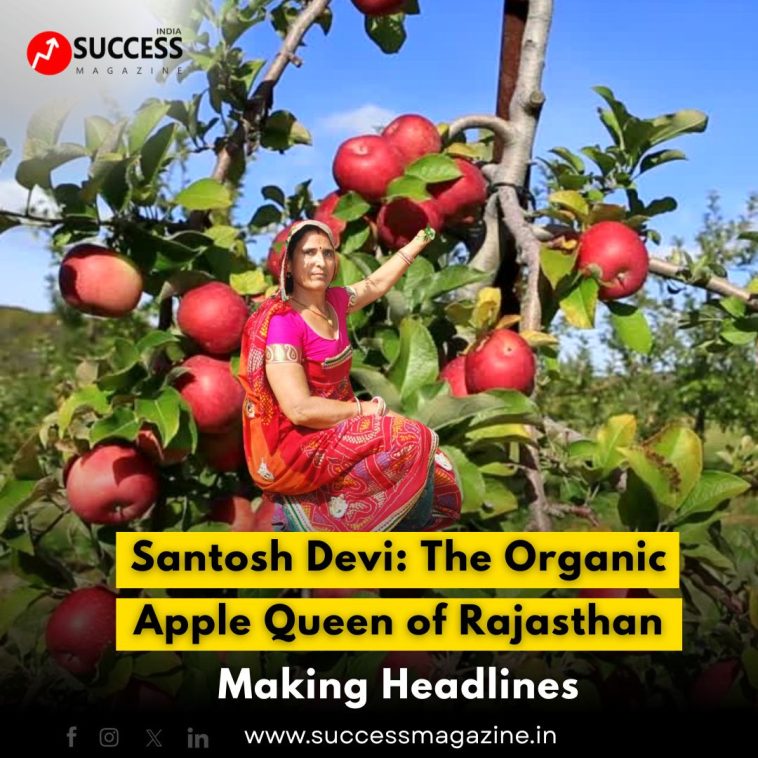In the heart of Rajasthan, a state better known for its arid lands and deserts than fruit cultivation, Santosh Devi, a determined and visionary woman farmer, has carved out a success story that is both inspiring and revolutionary. By growing organic apples in the unlikeliest of terrains, she has not only redefined agricultural possibilities in the region but also emerged as a role model for sustainable farming and rural entrepreneurship.
Defying Climate Challenges with Innovation
Rajasthan’s climate is typically considered unsuitable for apple cultivation, which thrives in cooler temperatures. However, Santosh Devi’s perseverance and innovative approach to organic farming turned this belief on its head. Using modern agricultural techniques and focusing on soil health, microclimate management, and organic fertilizers, she succeeded in creating an environment conducive to growing apples—without the use of harmful chemicals.
Her journey began with a deep desire to find profitable and eco-friendly alternatives to conventional crops. After conducting thorough research and seeking guidance from agricultural experts, she experimented with high-density apple varieties that require less chilling and can adapt to warmer climates. Her efforts paid off, as the apple orchards began yielding healthy, organic produce that quickly found a market due to its quality and purity.
A Role Model in Women Empowerment and Organic Farming
Santosh Devi’s success goes beyond farming. She is now a beacon of hope and empowerment for women in rural India. By breaking gender stereotypes and taking the lead in a male-dominated field, she has inspired many women to step into agriculture and explore modern, sustainable methods of farming.
She conducts regular workshops and training sessions for local farmers, especially women, to educate them about the benefits of organic farming, crop diversification, and self-sufficiency. Her story exemplifies the power of grassroots innovation and highlights the importance of women’s contribution to India’s agricultural sector.
Promoting Sustainability and Healthy Living
One of the key aspects of Santosh Devi’s initiative is her commitment to environmental sustainability. Her organic apple farming practices contribute to soil conservation, reduce water usage, and promote biodiversity. With rising awareness about healthy eating, her organically grown apples have become popular among health-conscious consumers and fetch a premium price in the market.
Through her efforts, Santosh Devi not only supports her own family but also generates employment for several local laborers, thus contributing to rural development and the local economy.
Recognition and Future Aspirations
Santosh Devi’s work has garnered attention from agricultural bodies and the government, leading to several awards and recognitions. Her farm is now often visited by students, agricultural officers, and fellow farmers who want to learn from her innovative practices.
She now plans to expand her operations, explore value-added products like apple juice and organic jams, and build a cooperative model to help other farmers benefit from organic apple cultivation in Rajasthan.
Conclusion
Santosh Devi’s journey is a testament to how determination, innovation, and sustainability can transform challenges into opportunities. Her story is not just about growing apples—it’s about planting the seeds of change in Indian agriculture.
Would you like a short Instagram caption or reel description based on this story?


